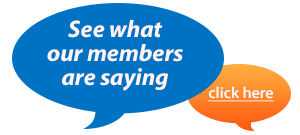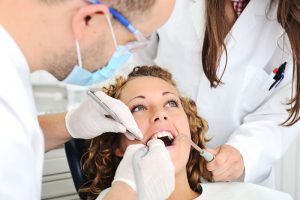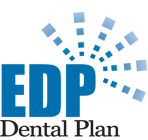A study by the National Health and Nutrition Examination Survey (NHANES) indicates that slightly more than half of the Millennials, those aged 20-34, have scheduled a dental visit within the past year, as compared to more than 62% of adults aged 35-64. The NHANES survey also notes that among adults age 20-64, Millennials are the segment with the highest percentage of untreated decay in their permanent teeth. The Millennials now comprise the largest segment of the population since the Baby Boomers, nearly 80 million. They also don’t visit their dentist.
Recent research by Quirk’s Marketing Research Media Group indicates that adults ages 20-34 are more likely to have avoided the dentist for 2-3 years. This strategy has proven both costly and painful. Among adults age 20-64, Millennials are the segment with the highest percentage of untreated decay in permanent teeth. For some, this is due to not having dental insurance offered by their employer, and not being aware of how to locate affordable dental care without insurance. In this article the reasons that Millennials’ are dental chair shy, as well as alternative options, will be explored.
C2b Solutions, a firm that identifies and examines the psychology of consumer segmentation, notes that Millennials are distrustful of health insurers whom they perceive as “putting profits ahead of patients.” As a result, the firm states, Millennials are disillusioned with the current state of health care, which they feel is high cost-driven, along with a shortage of care options. Millennials also distrust large institutions. As a result, c2b Solutions concludes, Millennials are independent, relying on their personal networks, and niche resources to manage their health.
Millennials Are More Likely to Self Diagnose
For many young Americans, dental health is something they don’t think they need to worry about. Many are living on their own for the first time, money is tight, and a visit to the dentist is not a priority. Nearly 75 percent of this age-group has used the Internet to research health-related issues. As a result, this age group is also more likely to diagnose any dental issues themselves. According to Quirk’s Media, More than 1-in-4 adults age 20-34 say their teeth and mouth condition is “excellent or very good.” Nearly 40 percent rate their own mouth and teeth condition as “good”. While these young adults may think they have excellent or good oral health, ignorance or poor self-diagnosis could cost them over time.
As an alternative to visiting a healthcare professional, Millennials instead put their trust in Dr. Google. It is believed that they research online and self diagnose more than any previous generation. Many, according to c2b Solutions’ findings, this demographic will put off or avoid a medical visit or procedure due to cost. This is because about 46% of Millennials do not have health insurance of any kind. Many are disillusioned by the Affordable Care Act (ACA) and may not realize that there are affordable dental care without insurance options available. Also, while Millennials recognize the importance of daily health routine habits, compliance in the form of dental checkups indicates their lack of compliance relative to future-focused behaviors. Their belief that “if it ain’t broke, it don’t need to be fixed” may be a case of penny wise, yet pound foolish behavior.
In truth, many dental health issues advance without pain until the condition is very serious and requires more invasive and often more expensive treatment. A lack of mouth pain doesn’t necessarily mean there isn’t a problem. In fact, when teeth or gums do begin to cause pain or discomfort, this generally signals a bigger issue.
Unhealthy Diet Leads to Early Tooth Decay
According to the American Dental Association (ADA), more than 85 percent of Millennials have tooth decay, and missing or filled permanent teeth. This is largely due to their drinking habits. Beverage-induced decay is common in Millennials, who are more likely than older adults to drink soft drinks and citrus or sports energy drinks. The average American drinks more than 53 gallons of soft drinks each year, more than any other beverage including milk, beer, coffee or water. Phosphoric acid in soda and citric acid in citrus drinks can cause tooth enamel corrosion. Sugary soft drinks can also cause cavities.
Where to Find Affordable Dental Care Without Insurance
Dental health is about prevention. Regular dental hygiene visits and exams every six months, as well as the at-home brushing and flossing, can alleviate many oral issues that can arise without proper care. Stay away from the dentist for too long, and the risk of dental decay increases. There are alternative ways to make these visits more affordable. More and more Millennials are discovering that discount dental plans, such as EDP Dental Plans provide affordable dental care without insurance. While not dental insurance, EDP Dental plans give our members access to a variety of dental health care providers who have met our stringent qualifications. Members can opt for a plan for singles, couples, or families. Each is offered at a modest annual membership fee, which may be paid annually or in installments. That makes quality dental care affordable for all.
Unlike regular dental insurance, there is no waiting period, no limit to the number of visits, no deductible, no age restrictions, and a money-back guarantee. Also unlike most dental insurance policies, EDP offers a 25% discount for procedures performed by many dental specialists. To learn more, please contact us at (800) 777-1085.







